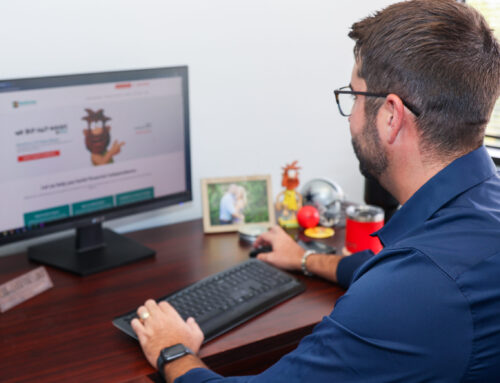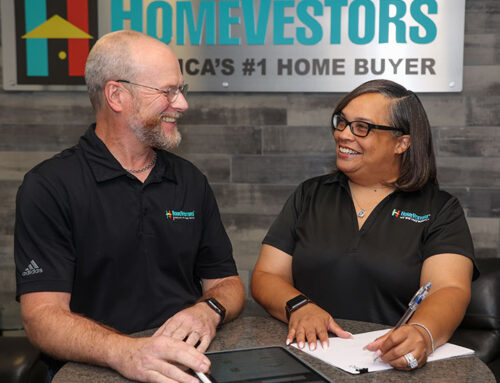
I like to think it wasn’t that long ago that I got curious about becoming an investor, when I started reading books on real estate investing, attending weekend introduction seminars, and chatting up anyone I could find on residential construction sites. Although it’s somewhat embarrassing to admit now, in the beginning, I was just looking to understand the job description for a real estate investor and decide whether or not I was qualified to do it. Then, after learning what an investor’s day-to-day activities looked like, I almost backed off on becoming one. The road to gaining the knowledge I’d need to get into the investing business and succeed seemed long and arduous. And, I wasn’t sure that quitting my corporate job for a startup in the real estate industry would be worth the risk. But, after a lot of soul-searching and a little more digging, I changed my mind. If you’re now where I was then, maybe I can help you make up your mind, too.
What is the Job Description for a Real Estate Investor?
The simplest definition of a real estate investor is someone who buys, and usually renovates, property to sell or keep as a rental for the purpose of building wealth. For those of us who come from the corporate world, we tend not to think of our jobs as opportunities to build wealth since we typically have little control over what we do and how much money we make doing it. In fact, for many of us, work is something we have to do just to get by. But, it’s when we start to wonder what else is out there and discover the benefits of investing in real estate, like being in control of your day-to-day and having an unlimited income potential, that the light bulb finally goes on. And, once that happens, it’s pretty hard to turn off.
Unfortunately, the day-to-day work of being a real estate investor is not always as easy as the job description makes it sound—especially when you’re just starting out and don’t have the training or support you need to get off the ground. So, before you jump right in, here’s a closer look at the specifics of what you’ll be jumping into:
- You will have to source leads. The foundation of becoming a real estate investor who can successfully make a good living is built on your ability to source great leads. And, since the single deal that yields career-making returns is only the stuff of television, you’ll need to find motivated sellers on an ongoing basis. There are a number of ways to do this, from buying lead lists to attending foreclosure auctions. But, the leads with the highest rates of conversion are those that come to you. For that, you’ll also need an effective set of marketing tools designed to reach homeowners in financial distress or other “ugly situations” who are ready to sell.
- You will have to run numbers. To ensure there is a good probability of realizing decent returns on any potential investments, you’ll have to run the numbers so that you’ll know what to offer the homeowner. Otherwise, you risk paying too much for a property that yields nothing but regret. And, only a professional real estate investment analysis and valuation tool that accurately calculates rehab costs and helps you determine the After Repair Value (ARV) of a home or multi-family property can help make this part of the job easier. Should you skip this step, or estimate incorrectly, you could end up with a money pit—and, out of a job.
- You will have to close deals. In order to make money by investing in real estate, you’re going to have to spend money on buying properties. So, after you run the numbers and feel confident that they make sense, it’ll be time to make an offer and, then, make good on that offer. To fund your purchase, you may have to get a hard money loan since banks and other traditional lenders rarely loan on the kind of fixer-uppers that investors buy. And, it’ll be critical to have a lender in place and ready to move since, to be competitive, you generally need to close fast on the deal.
- You will have to add value and perform repairs. Even if you buy the property at well below its market value, to get the most bang for your buck it’s important to add value as well as perform repairs. And, this holds true whether your exit strategy is to resell your investment property as quickly as possible or keep it as a rental. Properties do typically appreciate over a long enough timeline. But, if you go above and beyond the basics and perform a kitchen renovation on your investment property, for example, it’s possible to increase the value of the home more quickly. That can add up to potentially higher market rents and a higher selling price, provided you stay within budget and renovate according to your target market.
- You will have to rent or sell your property. After renovations are complete, you’ll have to invest some time in marketing your property. If you decide to hold your property as a rental, you’ll need to find tenants. But, if you’re trying to make money by flipping houses, you’ll have to find buyers. Either way, it’s not a bad idea to hire other experts, like a property manager to handle the rental or a licensed real estate agent to assist with the sale. Otherwise, you may find you’re overwhelmed with everything that has to be done—including the work you have to do to line up your next investment.
Once you understand what your work life is going to look like as a professional real estate investor, you might think you’ve got what it takes to get started. But, if you’re on the fence simply because you don’t know where you’d gain enough experience to even buy that first investment property, let alone start a real estate investing company, you’re in good company. No matter where you are right now, however, there is a way to do it that’s easier than you think.
Where to Gain the Experience and Get into the Business Right Now
Even after reading all of those books, going to several seminars, and questioning anyone who was willing to tell me what they knew about investing in real estate, I was hesitant to give it a go myself. Since I’d worked at a desk job all of my adult life, I wasn’t sure I had the chops. More to the point, I wasn’t sure where I could get the skills and the support I needed to enter the real estate market as a professional investor without falling flat on my face and, possibly, my finances.
Then, I called HomeVestors® and had the talk that would change the trajectory of my working life forever. I became an independently owned and operated HomeVestors® franchisee. I received a one-week initial training on how to invest in residential real estate, and I was provided with one-on-one mentoring from my own Development Agent once I got into the field and started working. Plus, I was given immediate access to a regional network of other HomeVestors® franchisees who’d already been doing what I was just setting out to accomplish. So, I was never without support and always encouraged to succeed. And that gave me all the chops I needed to put my new-found knowledge, and my already solid work ethic, to good use.
If the job description of a professional real estate investor suits you, contact HomeVestors® to get the support you need.
Each franchise office is independently owned and operated.
Contact
"*" indicates required fields





